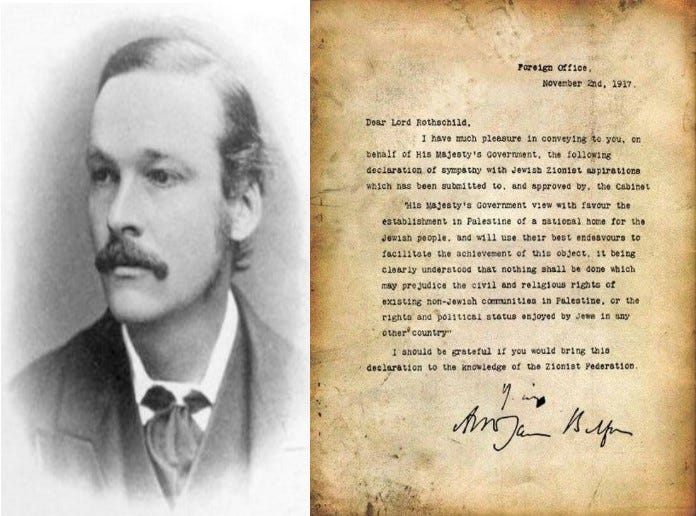A cursed promise
The Balfour declaration: what it said and how it shaped history
In 1917, British Foreign Secretary Arthur Balfour wrote a brief letter to Lord Rothschild, a British Jewish leader, supporting a Jewish homeland in Palestine. Known as the Balfour Declaration, it’s been referenced several times in previous articles. Here we will take a closer look at this document. While "declaration" might sound like a long document, this was actually a short letter. Let’s take a closer look at its brief but impactful words:
"His Majesty's Government view with favour the establishment in Palestine of a national home for the Jewish people, and will use their best endeavours to facilitate the achievement of this object, it being clearly understood that nothing shall be done which may prejudice the civil and religious rights of existing non-Jewish communities in Palestine, or the rights and political status enjoyed by Jews in any other country."
Analyzing the Text of the Declaration
The declaration contains several important phrases that hav…
Keep reading with a 7-day free trial
Subscribe to The Diaspora Dialogue to keep reading this post and get 7 days of free access to the full post archives.


